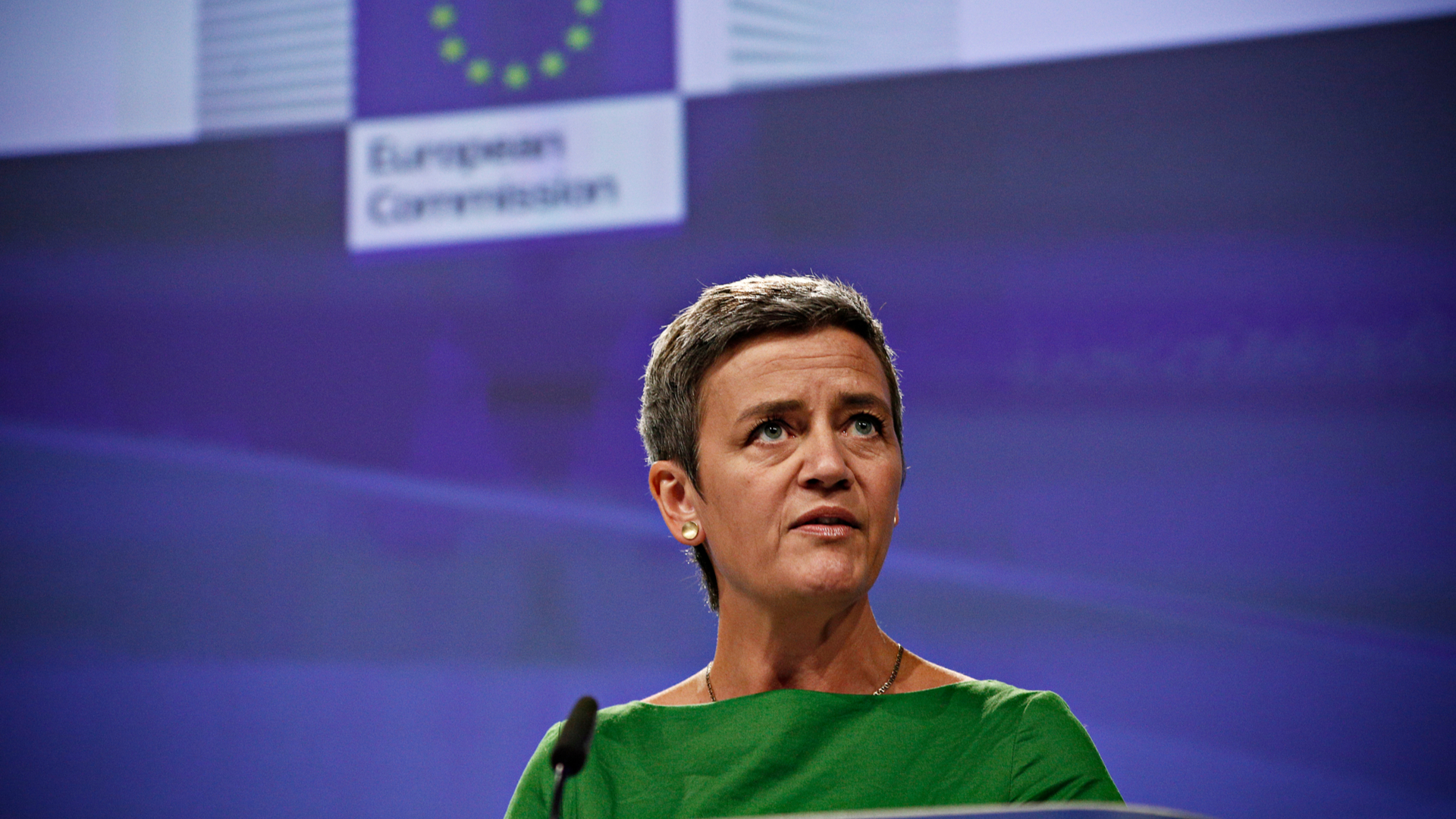EU proposes strict regulations to curb AI misuse
The draft regulations call for the use of systems that allow ‘social scoring' by governments to be banned


The European Commission (EC) has proposed a new set of wide-reaching regulations that aim to combat the misuse of artificial intelligence (AI).
Under the draft regulations, EU citizens will be protected from the use of AI for mass surveillance by law enforcement, which was ruled unlawful in the UK last year. The use of AI in recruitment, credit score evaluation, as well as border control management will be also be classified as "high-risk” due to discrimination concerns, while systems that allow ‘social scoring' by governments will be banned.
The 100-page document, long-awaited by digital rights campaigners, aims to deliver “harmonised rules” on AI across the EU’s 27 member states and proposes “laying down effective, proportionate and dissuasive penalties for their infringement”. Similarly to the fines imposed by GDPR reaches, companies that break the rules face fines up to 6% of their global turnover or €30 million, whichever is the higher figure.
Commenting on the newly-drafted rules, the EC's executive vice president for the digital age Margrethe Vestager said that, regarding AI, “trust is a must, not a nice to have”.
RELATED RESOURCE

“With these landmark rules, the EU is spearheading the development of new global norms to make sure AI can be trusted. By setting the standards, we can pave the way to ethical technology worldwide and ensure that the EU remains competitive along the way. Future-proof and innovation-friendly, our rules will intervene where strictly needed: when the safety and fundamental rights of EU citizens are at stake,” she added.
BCS, The Chartered Institute for IT stated that, by directly prohibiting the use of AI for indiscriminate surveillance and social scoring, the new AI legislation sets Europe on a different path to the US and China. BCS director of Policy, Dr Bill Mitchell OBE, said that “there will be a huge amount of work to do to professionalise large sections of the economy ready for this sweeping legislation”.
“These ambitious plans to make AI work for the good of society will be impossible to deliver without a fully professionalised AI industry. Those with responsibility for adopting and managing AI will need to ensure their systems comply with these new regulations, as well as those designing and developing these systems,” he added.
Sign up today and you will receive a free copy of our Future Focus 2025 report - the leading guidance on AI, cybersecurity and other IT challenges as per 700+ senior executives
Mitchell also predicts that “those involved in AI” will need to provide “evidence they have behaved ethically, competently and transparently”.
“In principle this is something we should all welcome, and it will help restore public trust in AI systems that are used to make high stakes decisions about people,” he added.
The EC will now have to thrash out the details of the proposed regulations with EU national governments and the European Parliament before the rules can come into force, a process that can take a number of years.
Having only graduated from City University in 2019, Sabina has already demonstrated her abilities as a keen writer and effective journalist. Currently a content writer for Drapers, Sabina spent a number of years writing for ITPro, specialising in networking and telecommunications, as well as charting the efforts of technology companies to improve their inclusion and diversity strategies, a topic close to her heart.
Sabina has also held a number of editorial roles at Harper's Bazaar, Cube Collective, and HighClouds.
-
 What is Microsoft Maia?
What is Microsoft Maia?Explainer Microsoft's in-house chip is planned to a core aspect of Microsoft Copilot and future Azure AI offerings
-
 If Satya Nadella wants us to take AI seriously, let’s forget about mass adoption and start with a return on investment for those already using it
If Satya Nadella wants us to take AI seriously, let’s forget about mass adoption and start with a return on investment for those already using itOpinion If Satya Nadella wants us to take AI seriously, let's start with ROI for businesses
-
 Five things to consider before choosing an MFA solution
Five things to consider before choosing an MFA solutionIn-depth Because we all should move on from using “password” as a password
-
 The IT Pro Podcast: Going passwordless
The IT Pro Podcast: Going passwordlessIT Pro Podcast Something you are, or something you have, could be more important than a password you know in the near future
-
 Podcast transcript: Going passwordless
Podcast transcript: Going passwordlessIT Pro Podcast Read the full transcript for this episode of the IT Pro Podcast
-
 UK police fails ethical tests with "unlawful" facial recognition deployments
UK police fails ethical tests with "unlawful" facial recognition deploymentsNews A University of Cambridge team audited UK police use of the tech and found frequent ethical and legal shortcomings
-
 Snapchat settles for $35 million in Illinois biometrics lawsuit
Snapchat settles for $35 million in Illinois biometrics lawsuitNews The social media giant had been accused of improperly collecting, storing facial geometry in violation of state legislation
-
 Home Office to collect foreign offenders' biometric data using smartwatch scheme
Home Office to collect foreign offenders' biometric data using smartwatch schemeNews Facial recognition and geolocation data will be matched against Home Office, Ministry of Justice and police databases
-
 Southern co-operative faces legal complaint for facial recognition CCTV
Southern co-operative faces legal complaint for facial recognition CCTVNews Rights group Big Brother Watch has written to the Information Commissioner to “stop unlawful processing”
-
 Amazon gave police departments Ring footage without permission
Amazon gave police departments Ring footage without permissionNews The tech giant has done this 11 times this year
